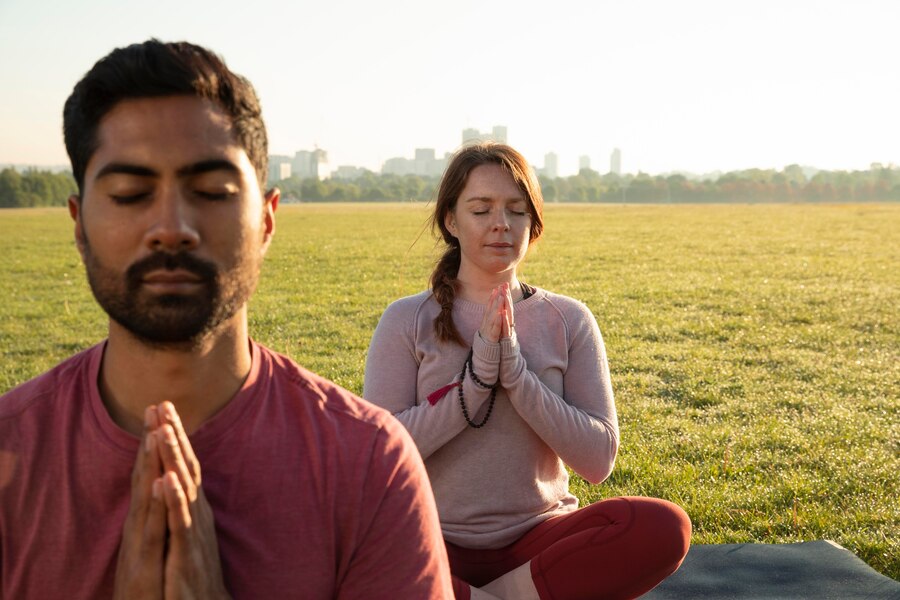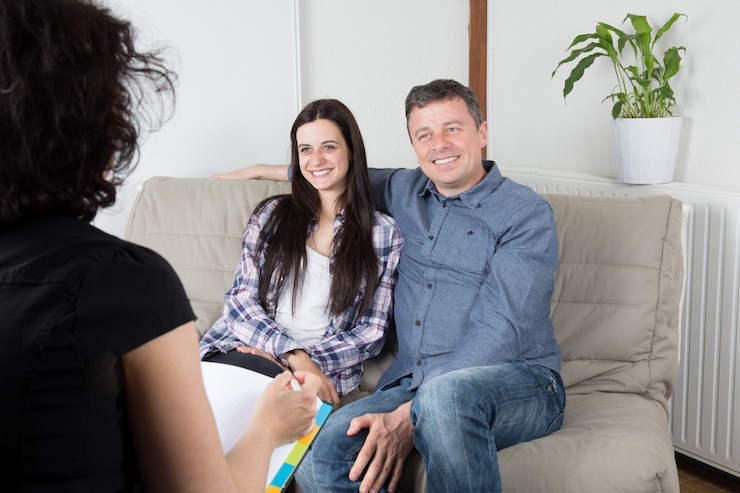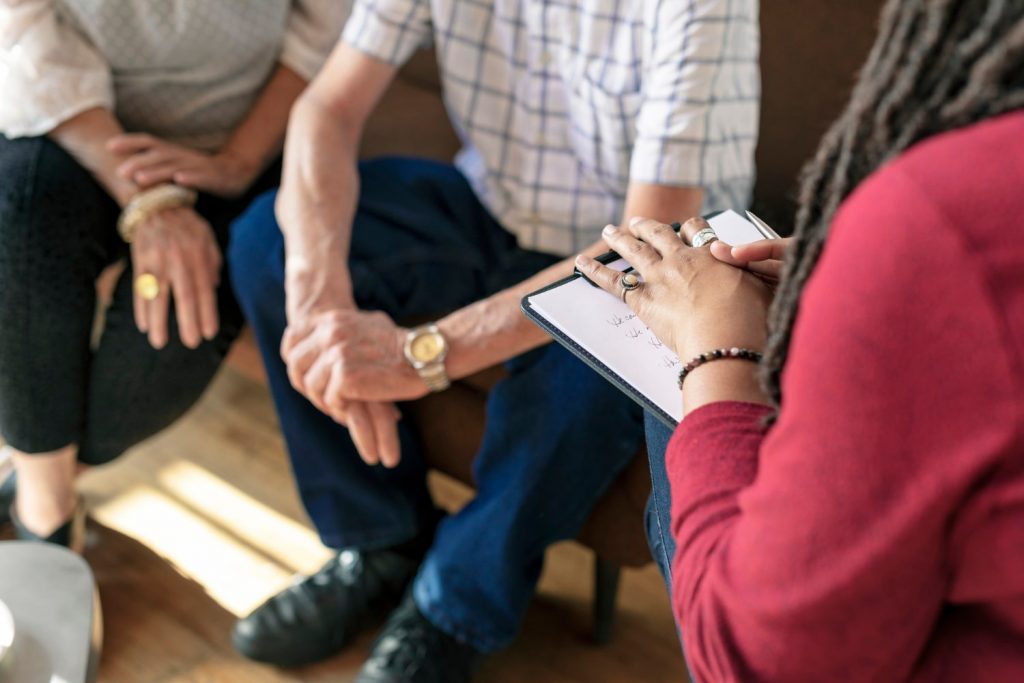How Couples Rehab Tackles Emotional Trauma and Addiction
Addiction and emotional trauma are often deeply intertwined, creating a cycle that can be incredibly difficult to break. When both partners in a relationship struggle with substance abuse, the impact can be devastating—not just for their personal well-being but also for their bond as a couple. Couples Rehabs, located in Orange County, California, provides a unique and specialized approach to addiction treatment that focuses on healing both individuals and their relationship. By addressing emotional trauma and substance use simultaneously, Couples Rehabs helps partners build a solid foundation for long-term recovery and a healthier future together.
Understanding the Link Between Emotional Trauma and Addiction
Emotional trauma is one of the leading factors contributing to addiction. Traumatic experiences—whether from childhood, past relationships, or recent life events—can create unresolved emotional pain. Many individuals turn to drugs or alcohol as a coping mechanism to numb these painful emotions.
For couples, addiction often stems from shared trauma, dysfunctional coping strategies, or enabling behaviors that make it harder to break free from substance dependence. Couples Rehabs in Orange County recognizes these complexities and offers tailored treatment programs designed to address both emotional wounds and addiction, creating a more sustainable path to recovery.
How Couples Rehabs in Orange County Provides a Holistic Approach to Recovery
At Couples Rehabs, treatment is not just about detoxification or quitting substances—it’s about healing the mind, body, and relationship. This holistic approach ensures that couples don’t just achieve sobriety but also develop healthier communication skills, emotional resilience, and relationship stability.
1. Comprehensive Dual Diagnosis Treatment
Many couples struggling with addiction also experience underlying mental health disorders such as depression, anxiety, or post-traumatic stress disorder (PTSD). Couples Rehabs specializes in dual diagnosis treatment, ensuring that both partners receive care for substance abuse as well as any co-occurring mental health conditions.
By addressing addiction and mental health together, the program prevents untreated psychological issues from triggering relapse. The team at Couples Rehabs in Orange County includes licensed therapists, psychiatrists, and addiction specialists who work closely with each couple to create a personalized treatment plan.
2. Trauma-Informed Therapy for Lasting Emotional Healing
Unresolved trauma is often a root cause of addiction. To help couples heal, Couples Rehabs offers evidence-based trauma therapies such as:
- Eye Movement Desensitization and Reprocessing (EMDR): Helps individuals process traumatic memories and reduce their emotional impact.
- Cognitive Behavioral Therapy (CBT): Identifies negative thought patterns and replaces them with healthier coping strategies.
- Dialectical Behavior Therapy (DBT): Helps couples regulate emotions and improve interpersonal relationships.
By addressing emotional trauma head-on, Couples Rehabs ensures that recovery is more than just a temporary fix—it’s a transformational process.
3. Detox and Medical Supervision for Safe Withdrawal
For many couples, the first step in recovery is detoxification. The withdrawal process can be physically and emotionally intense, which is why Couples Rehabs in Orange County provides medically supervised detox programs.
These programs ensure that withdrawal symptoms are managed safely, reducing the risk of complications. Licensed medical professionals monitor clients around the clock, offering medications when necessary to ease discomfort. Detox is an essential step in clearing the body of substances so that the deeper healing process can begin.
4. Relationship Therapy to Rebuild Trust and Communication
Addiction can severely damage trust between partners, leading to emotional distance, resentment, and conflict. Couples Rehabs prioritizes relationship healing through couples therapy and family counseling.
Through guided therapy sessions, couples learn how to:
- Rebuild trust and establish boundaries.
- Communicate openly and effectively without conflict.
- Develop coping mechanisms to support each other’s sobriety.
A healthy relationship is a crucial factor in long-term recovery, and Couples Rehabs ensures that both partners are equipped with the tools to maintain a strong, sober partnership.
5. Personalized Inpatient and Outpatient Treatment Options
Every couple’s journey to recovery is different, which is why Couples Rehabs in Orange County offers flexible treatment options based on their needs.
- Inpatient Residential Treatment: A structured, immersive environment where couples live at the facility, receive 24/7 care, and engage in daily therapy sessions.
- Outpatient Treatment Programs: Ideal for couples who need ongoing support but cannot commit to full-time residential care. These programs offer flexibility while still providing comprehensive therapy and addiction treatment.
Both treatment options include group therapy, individual counseling, and holistic healing practices to create a well-rounded recovery experience.
Why Choose Couples Rehabs in Orange County?
With so many addiction treatment centers available, finding a program that specializes in couples rehab is crucial for partners who want to recover together. Couples Rehabs in Orange County stands out for its unique approach, blending addiction treatment with relationship therapy to ensure long-term recovery and emotional well-being.
1. A Supportive, Healing Environment
Located in beautiful Orange County, California, Couples Rehabs provides a tranquil setting that promotes healing. The peaceful environment allows couples to focus entirely on their recovery without external distractions.
2. Licensed and Experienced Professionals
From licensed therapists and medical staff to addiction specialists, the team at Couples Rehabs is dedicated to providing high-quality, evidence-based treatment. Their expertise ensures that both partners receive the care they need to overcome addiction and rebuild their relationship.
3. Customized Treatment Plans for Each Couple
No two couples experience addiction in the same way. That’s why Couples Rehabs offers individualized treatment plans tailored to the unique challenges and strengths of each couple.
4. Ongoing Aftercare and Relapse Prevention
Recovery doesn’t end after rehab. Couples Rehabs in Orange County provides long-term support and aftercare planning to help couples maintain their sobriety. Through ongoing therapy, support groups, and relapse prevention strategies, couples can continue their journey toward a healthier future together.

Frequently Asked Questions (FAQ) About Couples Rehab in Orange County
1. What is couples rehab, and how does it work?
Couples rehab is a specialized addiction treatment program designed for partners who are struggling with substance abuse together. At Couples Rehabs in Orange County, both individuals receive personalized addiction treatment, including medically supervised detox, dual diagnosis therapy, relationship counseling, and relapse prevention strategies. The program helps couples heal individually while also rebuilding trust and fostering a supportive, sober relationship.
2. Can both partners recover successfully in the same rehab program?
Yes! Studies show that couples who go through rehab together and receive specialized therapy to address their relationship dynamics often have higher long-term sobriety rates. At Couples Rehabs in Orange County, treatment is designed to support both partners, ensuring they each receive individualized care while working together toward lasting recovery.
3. What types of addiction does Couples Rehabs in Orange County treat?
Couples Rehabs provides comprehensive treatment for various substance use disorders, including:
- Alcohol addiction
- Opioid addiction (heroin, fentanyl, prescription painkillers)
- Cocaine and methamphetamine addiction
- Benzodiazepine dependency (Xanax, Valium, Klonopin)
- Marijuana dependence
- Polysubstance abuse (multiple drug dependencies)
Each treatment plan is tailored to the unique challenges both partners face in their recovery journey.
4. What makes Couples Rehabs in Orange County different from traditional rehab centers?
Unlike traditional rehab centers that focus solely on individual treatment, Couples Rehabs specializes in helping partners recover together. The program integrates relationship therapy, trauma-informed care, and dual diagnosis treatment, ensuring that addiction recovery goes beyond just sobriety—it strengthens the emotional bond between partners.
5. What is dual diagnosis, and why is it important in couples rehab?
Dual diagnosis treatment addresses both substance abuse and co-occurring mental health disorders, such as anxiety, depression, PTSD, and bipolar disorder. Many couples battling addiction also struggle with emotional trauma or unresolved mental health issues. Couples Rehabs in Orange County provides a comprehensive dual diagnosis program to treat the root causes of addiction, reducing the risk of relapse.
6. Do couples have to go through detox before starting rehab?
Yes, detox is an essential first step for many couples entering rehab, especially if they have been using substances regularly. Couples Rehabs in Orange County offers medically supervised detox to help manage withdrawal symptoms safely. After detox, couples transition into residential or outpatient programs to continue their healing process.
7. How does couples therapy help partners recover from addiction?
Addiction often leads to broken trust, unhealthy communication patterns, and codependency. Couples therapy at Couples Rehabs helps partners:
- Develop healthier communication skills
- Set boundaries and rebuild trust
- Address past trauma and emotional wounds
- Learn supportive strategies for maintaining sobriety together
These therapy sessions provide couples with the tools to maintain a strong, sober relationship even after rehab.
8. Are there different types of rehab programs available for couples?
Yes! Couples Rehabs in Orange County offers several treatment options to meet different needs:
- Inpatient residential rehab: A structured, immersive program where couples stay at the facility full-time.
- Partial hospitalization program (PHP): Intensive treatment with medical supervision but without full-time residential care.
- Intensive outpatient program (IOP): A flexible treatment option for couples who need continued support while living at home.
- Aftercare and relapse prevention programs: Ongoing therapy and support to maintain long-term sobriety.
Each couple’s treatment plan is personalized based on their level of addiction, mental health needs, and relationship dynamics.
9. How long does couples rehab last?
The length of rehab varies depending on each couple’s situation. Couples Rehabs in Orange County offers programs ranging from 30-day inpatient rehab to 90-day extended care and long-term outpatient treatment. The recommended length depends on factors such as substance severity, co-occurring disorders, and relationship goals.
10. What happens after couples complete rehab?
Recovery doesn’t stop after rehab—it’s a lifelong journey. Couples Rehabs in Orange County provides aftercare support, relapse prevention planning, and ongoing therapy to help couples transition back into daily life. Partners are encouraged to:
- Continue couples and individual therapy
- Attend support groups and 12-step meetings
- Develop healthy coping strategies and lifestyle changes
- Build a strong support system for sustained sobriety
With ongoing guidance and relapse prevention strategies, couples can maintain a healthy, sober future together.
Taking the First Step Toward Healing as a Couple
Addiction doesn’t have to define a relationship. With the right support and professional treatment, couples can break free from substance abuse, heal from emotional trauma, and rebuild a stronger, healthier partnership.
If you and your partner are ready to start your journey to recovery, Couples Rehabs in Orange County is here to help. With compassionate care, evidence-based therapies, and a holistic approach to healing, Couples Rehabs provides the tools and support needed for long-term sobriety.
Take the first step today—because healing together is possible.

















Recent Comments